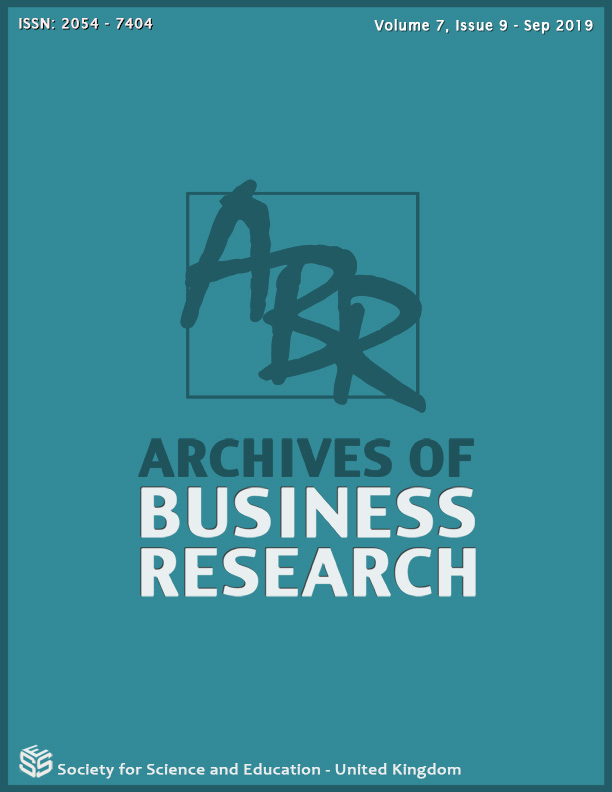The Motivation Based on Customer Interaction
Are Automotive Product Development Engineers at a Disadvantage?
DOI:
https://doi.org/10.14738/abr.79.6922Keywords:
Product development engineers; automotive; motivations; customer requirementsAbstract
Many factors and theories of motivation apply broadly to workers regardless of profession. The prior research has shown that engineers and knowledge workers are highly motivated by intrinsic and non-monetary factors such as challenging work, recognition for good results, and the opportunity for professional growth. Therefore, the nature of their assigned tasks and their ability to complete their work in an efficient and robust way are highly related to motivation. Product Development Engineers (PDEs) play a crucial role in creating value and revenue for companies via the development of useful new products for customers. It is, however, a general observation that PDEs in automotive companies, especially at original equipment manufacturer, OEM, levels, often have minimal or no interaction with the end customer. With the advent of hybrid, electric, and autonomous vehicles, PDE working in the automotive industry, APDEs, has seen a shift in their role and responsibilities from traditional automotive PDEs. APDEs mostly receive customer input indirectly from management or through a marketing organization. This is in contrast to other professionals such as doctors, lawyers, and architects who frequently interact directly with their customers.
This paper presents the finding of qualitative research, examining the relationship between APDEs interaction with customers, and achieving clear customer inputs. The paper investigates differences among various types of APDEs and seeks further insights as to the motivational impact of customer inputs on automotive PDEs. It also probes the question if there are any differences among various types of automotive PDEs when it comes to motivation. The paper concludes that, for some types of APDEs, the lack of customer interaction is a motivational disadvantage while for the others it is not. It also concludes that further research needs to be conducted in order to find the reasons for such discrepancies.
References
[2] Katz, R. (2005). Motivating Technical Professionals Today. Research-Technology Management, 48(6), 19-27. Retrieved from http://ezproxy.emich.edu/login?url=https://search.proquest.com/docview/213803566?accountid=10650
[3] Petronio, A., & Colacino, P. (2008). motivation strategies for knowledge workers: Evidence and challenges. Journal of Technology Management & Innovation, (3), 21-32. DOI:10.4067/S0718-27242008000100003
[4] Hong, P., Vonderembse, M. A., Doll, W. J., & Nahm, A. Y. (2005). Role change of design engineers in product development. Journal of Operations Management, 24(1), 63-79. DOI:10.1016/j.jom.2005.03.002
[5] Njoroge, C. N., & Yazdanifard, R. (2014). The impact of social and emotional intellegence on employee motivation in a multigenerational workplace. International Journal of Information, Business, and Management, 6(4), 163-170. Retrieved from http://ezproxy.emich.edu/login?url=https://search.proquest.com/docview/1552838299?accountid=10650
[6] Ringen, G., & Holtskog, H. (2013). How enablers for lean product development motivate engineers. International Journal of Computer Integrated Manufacturing, 26(12), 1117–1127. https://doi.org/10.1080/0951192X.2011.593046
[7] Vangelova, L. (2017). Automotive engineer. The Science Teacher., 84(4).
[8] Baldwin, C., Arturo Garza-Reyes, J., Kumar, V., & Rocha-Lona, L. (2014). Personal development review (PDR) process and engineering staff motivation. Journal of Manufacturing Technology Management, 25(6), 827-847. Retrieved from http://ezproxy.emich.edu/login?url=https://search.proquest.com/docview/1660773817?accountid=10650
[9] Rahman, M., Mondol, D. K., & Ali, A. (2013). Nexus of employee motivation with HRM and workplace behavious: An assesment of the dominant factors. Management Research and Practice, 5(4), 49-57. Retrieved from http://ezproxy.emich.edu/login?url=https://search.proquest.com/docview/1476274035?accountid=10650
[10] Nujjoo, A., & Meyer, I. (2012). The relative importance of different types of rewards for employee motivation and commitment in south Africa. South African Journal of Human Resource Management, 10(2), e1-e10. DOI:10.4102/sajhrm.v10i2.442
[11] Hebda, J. M., Vojak, B. A., Griffin, A., & Price, R. L. (2012). Motivating and demotivating technical visionaries in large corporations: A comparison of perspectives. R & D Management, 42(2), 101.
[12] Lord, R. L., & Farrington, P. A. (2006). Age-related differences in the motivation of knowledge workers. Engineering Management Journal, 18(3), 20-26. Retrieved from http://ezproxy.emich.edu/login?url=https://search.proquest.com/docview/208954946?accountid=10650
[13] Rumpel, S., & Medcof, J. W. (2006). Total rewards: Good fit for tech workers. Research-Technology Management, 49(5), 27-35. Retrieved from http://ezproxy.emich.edu/login?url=https://search.proquest.com/docview/213802672?accountid=10650






